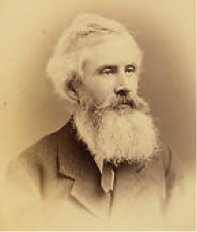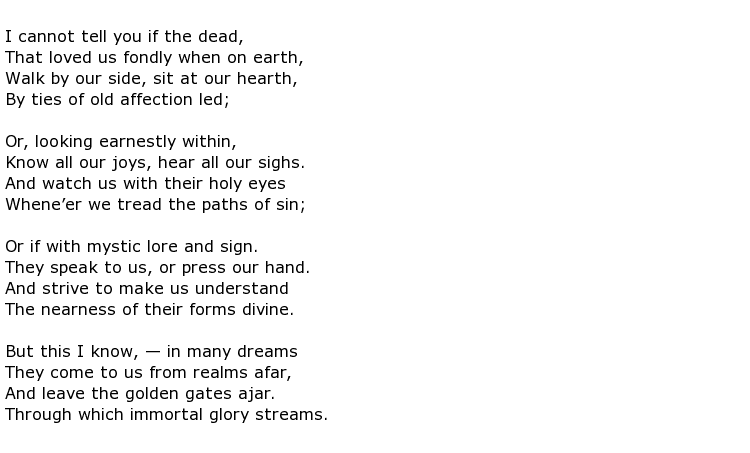 Albert Laighton was a 19th century American poet who lived all of his life in the New Hampshire town of Portsmouth. He was a banker by profession and began writing articles and poetry for various periodicals from the age of 15 onwards. Many of his poems are of a light hearted nature, exploring the changing of the seasons and our attitudes to that inexorable passage of time, or vivid descriptions of the natural world. He liked to describe the glories to be found in woodlands and the joy of seeing the birds that herald the birth of a new Spring. Others though were of a more sombre nature, as discussed below.
Albert Laighton was a 19th century American poet who lived all of his life in the New Hampshire town of Portsmouth. He was a banker by profession and began writing articles and poetry for various periodicals from the age of 15 onwards. Many of his poems are of a light hearted nature, exploring the changing of the seasons and our attitudes to that inexorable passage of time, or vivid descriptions of the natural world. He liked to describe the glories to be found in woodlands and the joy of seeing the birds that herald the birth of a new Spring. Others though were of a more sombre nature, as discussed below.
Laighton was born on the 8th January 1829 in Portsmouth. Very little is recorded about his life but it seems he grew up in a fairly affluent environment. He was educated at private schools in his home town and then moved into the banking profession (presumably) soon afterwards. His output of poetry ran to two volumes of collected poems, the first being published in 1859 and the second in 1878. In conjunction with another local poet he had a compilation published in 1865 called Poets of Portsmouth.
While many of Laighton’s poems are fairly short, and usually in a standard rhyming format, he wrote one very long poem called Beauty. During the year 1858 he was invited by the literary society at Bowdoin College, along with other organisations, to read the poem in full. Here is a short extract from it:

In contrast to poems such as this were his examinations of death and society’s attitudes to this natural progression of life. Take, for example, his poem Found Dead which describes an event as commonplace when it was written in the 19th century as it is now. It’s about the vagrants, the rough sleepers, the exiles from normal family life – they have always been there and probably always will be. Here is the opening verse of this mournful poem:

Then there was his poem The Dead which is an examination of death itself, offering his view of whether or not an afterlife exists and, if it does, what it might look like. Here is the poem in full:

Laighton challenges the different beliefs that people have while stating the obvious fact that he cannot know if there is such a thing as a guardian angel who watches over us until it is our turn to die. Where he says that “they speak to us, or press our hand, and strive to make us understand” it could be argued that he had “new age” philosophies perhaps well before the term was invented. The last verse, where he suggests that the golden gates are left ajar, certainly implies that he believes that there is a pathway to heaven that has been well trodden already. With “immortal glory” streaming through the gates this is a clear invitation for those about to pass on and, perhaps, reassurance that being dead isn’t such a terrible thing to contemplate.
The fact is, of course, that no one knows what happens after death but Laighton certainly offered an optimistic prospect with his poetry.
Albert Laighton died in Portsmouth on the 6th February 1887, aged 58.

